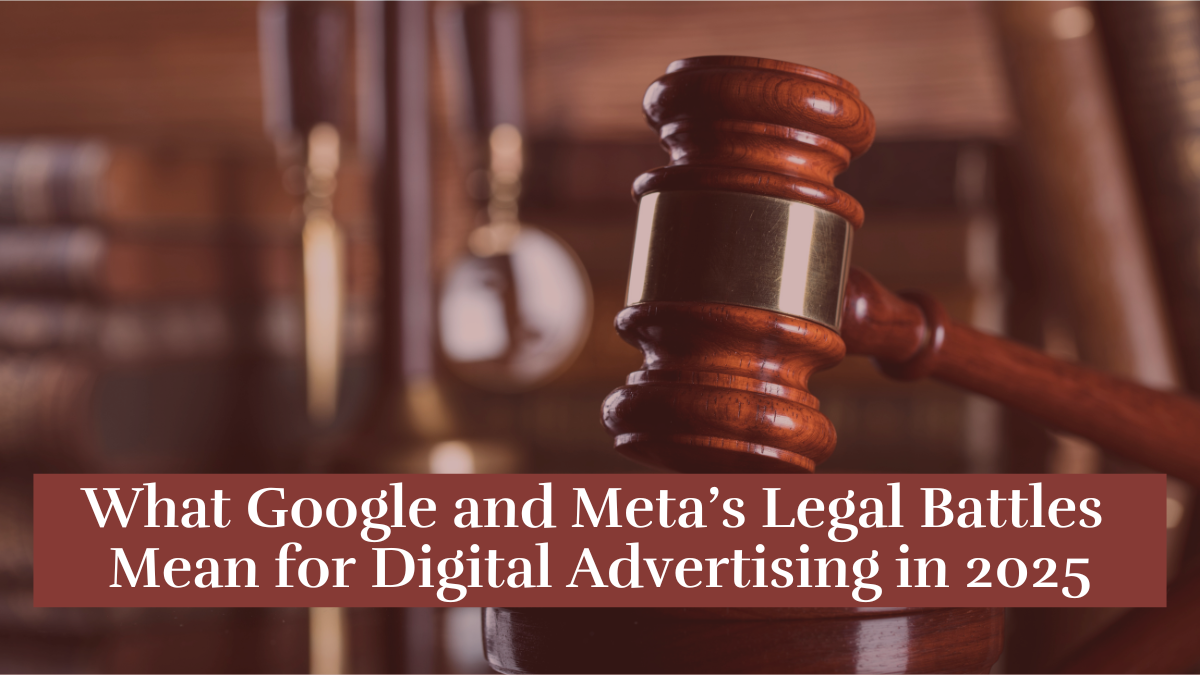The digital advertising world is no stranger to fast-paced changes—but lately, it’s moving at full-on courtroom-drama speed. Two major legal cases involving Google and Meta are making headlines, and depending on the outcomes, they could significantly reshape how digital advertising works for businesses like yours.
At January Spring, we’re breaking down what these legal rulings mean for advertisers, publishers, and digital marketers—and what you need to keep an eye on moving forward.
Google’s Ad Monopoly Ruling: What You Need to Know
In a landmark decision, a federal court has ruled that Google violated antitrust laws by monopolizing the digital ad market. This civil case, brought by the U.S. Department of Justice, found that Google unfairly dominated multiple layers of the ad tech ecosystem—from the ad exchange to publisher-side servers to advertiser tools.
Key Takeaways from the Ruling:
-
Google may be required to divest major assets, including:
-
The Chrome browser (used by over 60% of internet users)
-
The Android operating system
-
YouTube’s advertising arm, which generates $31 billion in ad revenue
-
-
The company could be prohibited from favoring its own services, including YouTube, in ad auctions
-
Google might need to end exclusive revenue-sharing deals, such as its agreement with Apple to promote Chrome
-
Perhaps most significantly, Google could be forced to syndicate its search feed—giving competitors access to the valuable first-party data it currently controls
Why This Matters to Advertisers:
Right now, nothing about your digital campaigns is changing overnight. But this decision could trigger major shifts in how ads are bought and sold, how data is shared, and how platforms interconnect. A breakup of Google’s ad tech stack would create new opportunities—and new complexities—for reaching audiences across the web.
Meta’s “Buy or Bury” Antitrust Case
Meanwhile, Meta (formerly Facebook) is facing its own antitrust lawsuit from the Federal Trade Commission (FTC). The central accusation? That Meta used its massive market power to eliminate potential competition by acquiring it.
What the FTC Alleges:
-
Meta’s acquisitions of Instagram (2012) and WhatsApp (2014) weren’t just about innovation—they were allegedly designed to “neutralize competitive threats”
-
The FTC calls this strategy the “Buy or Bury” playbook—either acquire fast-growing rivals or use resources to crush them
-
A now-famous internal email from Mark Zuckerberg, stating that Instagram would help “neutralize a potential competitor,” is expected to be a key piece of evidence
Meta’s Response:
Meta claims these acquisitions were completely legal and smart business decisions that made their platform better for users and advertisers alike.
What’s at Stake:
While the case is still unfolding, its implications could be huge. If the court rules against Meta, it could affect how large platforms are allowed to grow through acquisitions—and how they must compete moving forward. That could change the balance of power among platforms, and in turn, the tools and reach available to advertisers.
What Does This All Mean for You and Your Advertisers?
If you’re running digital ads today, there’s no need to panic. Your campaigns, targeting, and performance strategies remain unchanged—for now.
But these cases signal a growing push to hold Big Tech accountable for how they operate and compete. Over time, this could lead to:
-
More advertising choices outside of Google and Meta
-
Increased access to high-quality audience data across platforms
-
New regulatory requirements around data usage and transparency
As your digital advertising partner, we’re staying on top of these evolving cases. If (and when) any of these decisions affect your campaigns, you’ll be the first to know.
We’re here to guide you through whatever shifts may come—so you can keep growing your audience and reaching the right people, no matter how the tech giants play their hand.
Until then? Keep calm and keep advertising. We’ve got the courtroom drama covered.

